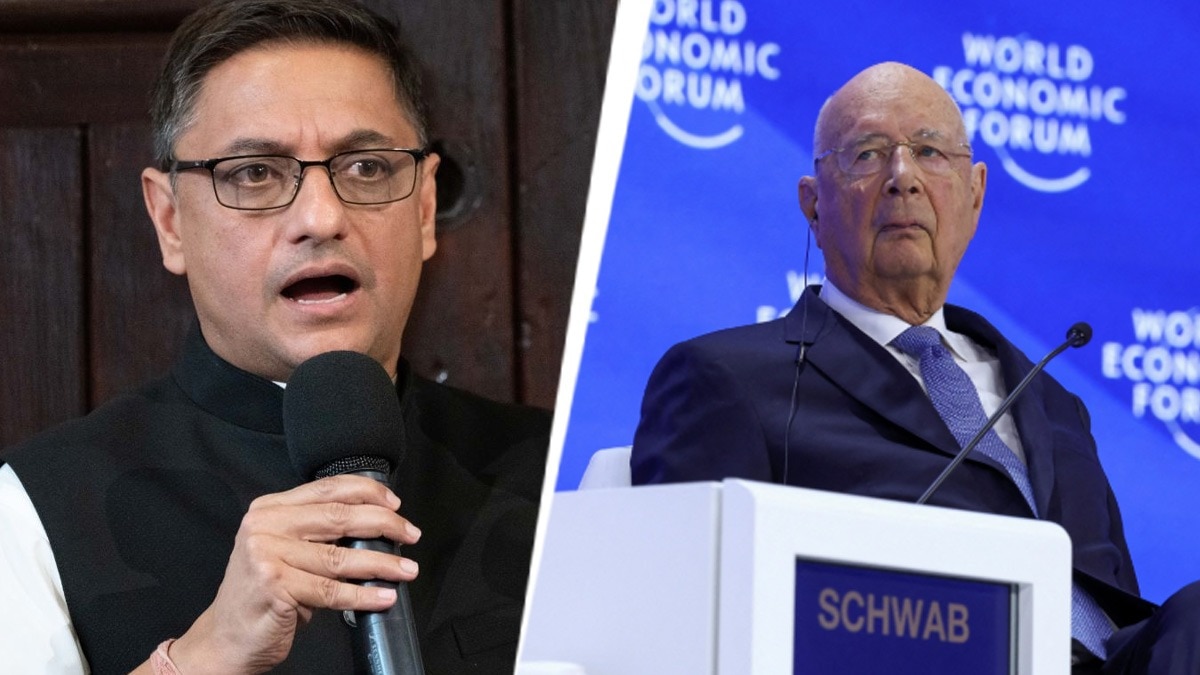Economist Sanjeev Sanyal on Monday blasted global rankings again after it was reported that the World Economic Forum (WEF) manipulated its 2017 competitiveness index to show the UK in a poorer light after the Brexit vote. “Now even Western countries are complaining that their global rankings are manipulated,” he wrote on X. “Not surprised. Once you create an opaque system of rankings and indices to massage global narratives, there is no reason that the same machinery will not be used by the same elites to protect their interests at home.”
Now even Western countries are complaining that their global rankings are manipulated. Not surprised. Once you create a opaque system of rankings and indices to massage global narratives, there is no reason that the same machinery will not be used by the same elites to protect… https://t.co/DF53C53sP5
— Sanjeev Sanyal (@sanjeevsanyal) July 21, 2025
The comment came hours after The Telegraph reported that Klaus Schwab, founder of the WEF and long-time face of its Davos summit, intervened to alter the UK’s rank in the 2017/2018 Global Competitiveness Report. The draft version had shown Britain improving from seventh to fourth, but Schwab reportedly told staff the UK “must not see any improvement” as it would be “exploited by the Brexit camp”. The final report showed the UK had dropped to eighth.
The allegations are part of an ongoing internal investigation at the WEF, triggered by whistleblower complaints against Schwab over misuse of funds, inappropriate remarks to junior staff, and manipulation of research.
Sanyal, a member of the Prime Minister’s Economic Advisory Council, has previously questioned the credibility of global indices and ratings frameworks. In August 2023, he said sovereign ratings assigned to India were “utterly absurd” and claimed the country should be placed “at least one, if not two grades higher”.
“Why should we have to abide by rules and norms of the West, which we had no role in framing…just like the several indices where we feature below 100,” he said during a discussion hosted by CareEdge Ratings.
In May 2024, Sanyal said that many indices were built on subjective inputs from as few as five to 30 people and were often used to downgrade India’s standing on governance, academic freedom, and happiness.
“So, for example, in 2022, India’s academic freedom was below that of Afghanistan. I mean, you’ve got to be kidding me,” the noted economist said in a conversation with historian Hindol Sengupta. He also noted that a recent global index had ranked India’s media freedom below countries like Pakistan.
Sanyal said these indices were produced through opaque layers of data aggregation. “It began to remind me a little bit of the way in which money laundering is done. You know, layer on layer of accounts-you lose track of what’s going on.”
He added that the indicators often originated from a handful of entities. “All of the indices-no matter how many of them exist-are funded by the same 4–5 institutions. All of them are some kind of billionaire foundation based in the North Atlantic and one or two government sources, like the State Department.”
